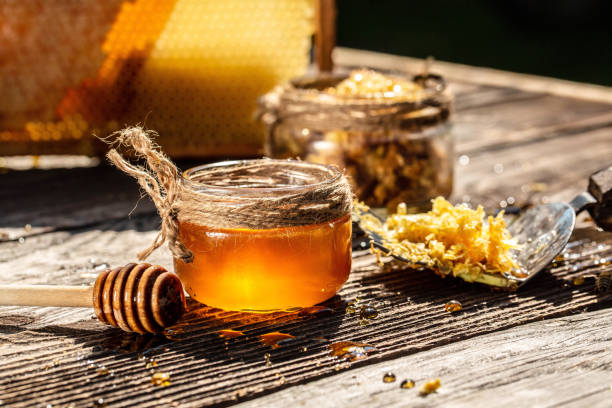
Mãnuka vs Regular Honey – What’s the Real Difference?
Share
Both mãnuka honey and regular honey come from the hard work of bees and offer natural sweetness and nutrients. But when it comes to healing power and wellness benefits, mãnuka honey clearly stands apart. In this comparison, we'll uncover exactly why New Zealand’s golden nectar delivers unmatched potency.
1. Source & Flower Nectar Origins
- Mãnuka honey is a monofloral honey made exclusively from the nectar of the Mãnuka tree (Leptospermum scoparium) native to New Zealand. Its nectar contains unique precursors like DHA, which transform into methylglyoxal (MGO) -- the compound behind its exceptional health benefits.
- Regular honey, by contrast, comes from a mix of flower sources -- clover, wildflower, orange blossom, etc. -- and doesn’t contain the same levels of MGO or related bioactive compounds.
2. Health Benefits & Antibacterial Power
- Mãnuka honey is prized for its non-peroxide antibacterial activity, driven by MGO, which remains stable even when heated -- unlike hydrogen peroxide-based activity in regular honey.
- Regular honey possesses only mild, peroxide-based antibacterial traits -- helpful for minor irritations but nowhere near the potency of mãnuka.
- Additionally, mãnuka’s high levels of antioxidants, anti-inflammatory compounds, and vitamins make it a powerhouse for skin, gut, and immune support.
3. Certification & Authenticity
- New Zealand mandates strict testing under the MPI Mãnuka Honey Science Definition (since Jan 2018) -- ensuring mãnuka honey is pure and traceable.
- The UMF (Unique Mãnuka Factor) certification adds another layer of trust, measuring MGO, DHA, leptosperin, and vermãnuka
- Identifying origin -- a seal of potency and authenticity.
- Regular honey often lacks comparable certifications, making it harder to verify purity and provenance.
4. Taste, Texture & Shelf Stability
- Mãnuka honey often has an earthy, slightly bitter or herbaceous flavour, with a rich, viscous texture due to proteins and colloids.
- Regular honey tends to be lighter and sweeter, with clearer consistency due to processing and filtration.
- Plus, mãnuka’s low moisture and acidic nature give it a long shelf life, resisting spoilage naturally.
5. Price and Value
- Mãnuka honey is more expensive, reflecting its rarity, NZ provenance, potency, and strict certification -- especially in higher UMF/MGO grades.
- Regular honey offers everyday value but without the medicinal-grade benefits -- great for general use but doesn’t provide the same wellness credentials.
Quick-Guide Comparison Table

When to Choose Mãnuka vs Regular Honey
- Opt for Mãnuka Honey when you want targeted health benefits: soothing sore throats, skincare healing, gut support, or a natural immunity boost.
- If budget is a priority, stick with Regular Honey for everyday sweetening, general cooking, and casual use.
Conclusion
While regular honey is versatile and delicious, mãnuka honey elevates the experience -- with unmatched antibacterial strength, proven health benefits, and quality backed by certification. Whether you're treating a sore throat, mixing a natural face mask, or looking for gut-friendly wellness, mãnuka honey offers a premium step up.
Explore Mãnuka Hunters' top-grade UMF-certified mãnuka honey and taste the difference of true New Zealand purity.
Want to learn more about New Zealand Manuka Honey? The Manuka Hunters blog is a great place to start!
